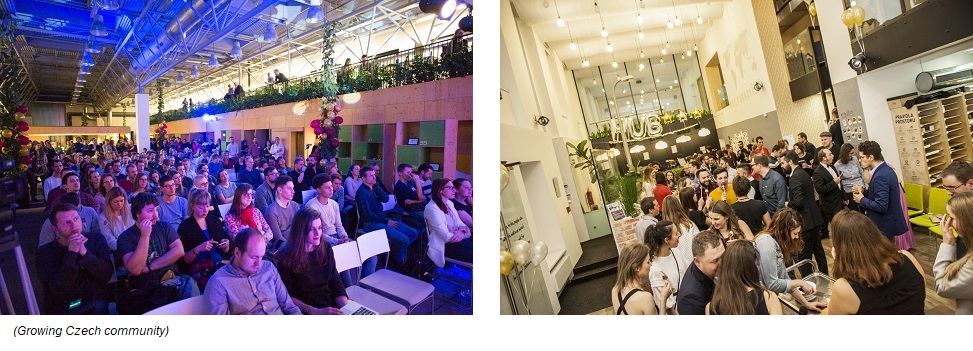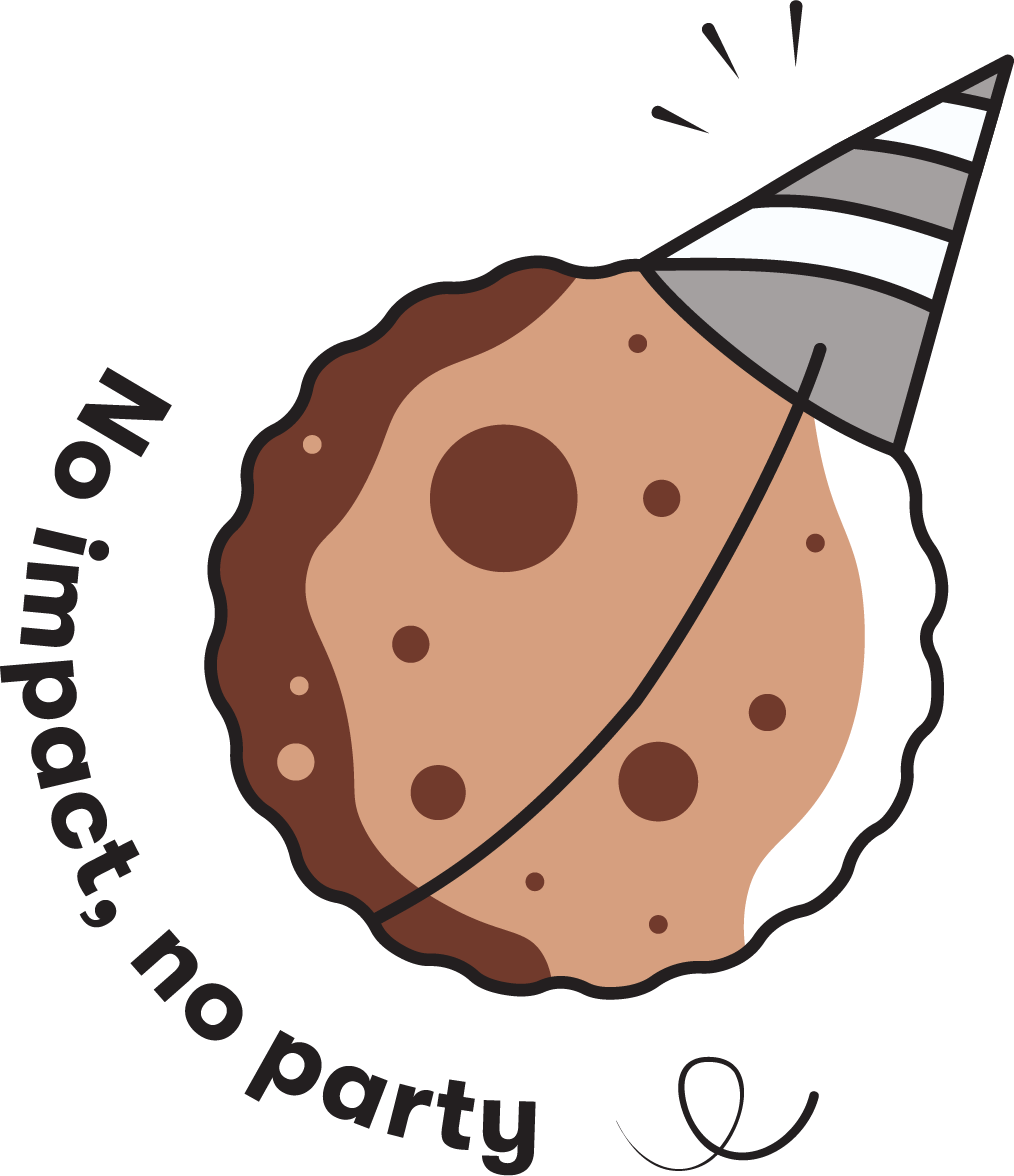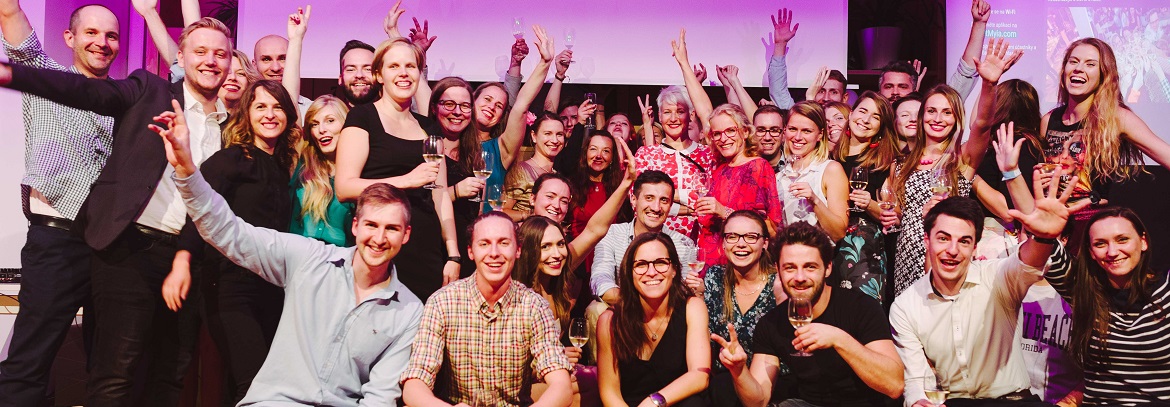
The Impact Hub Founding Story
Where did the values of trust, courage and collaboration reflecting the foundation of the Impact Hub come from? How did it all begin and who stands behind today’s global network of co-working spaces? You can learn all that and more if you read the story of the Impact Hub founder Jonathan Robinson. In addition, you can also find out about our beginnings in the Czech Republic.
The first “Hub” was founded in Great Britain, on the top floor of a storage space with an area of 300 sqm. This place and the unique idea behind it formed the base of a global network that currently spreads across more than 100 cities and connects more than 15,000 members.
 From a student initiative to a comprehensive idea with social impact
From a student initiative to a comprehensive idea with social impact
This story of typical Hub-like collaboration began long before the first Impact Hub saw the light of day. During the summer holidays of 1998 when a group of students at a progressive school were not afraid to make their dreams and ideas come true. They decided to organize a two-day event focusing on human rights, the environment and social topics. They chose the Royal Festival Hall in London that hosts thousands of events every year and can hold up to 2,500 people.
After months of constant phone calls, writing and sleepless nights, the students managed to organize an event that brought together the most prominent world leaders and thinkers in their respective areas. Some of the visitors included personalities such as Anita Roddick, the founder of the Body Shop, Jon Snow, an English journalist and TV host, and several Nobel Peace Prize winners.
The event was an unprecedented success. The then only 19-year-old organizers received an offer from the UN to organize a global summit on sustainable development in Johannesburg in 2002. Instead, the students headed to Soweto, a South African city that was the heart of the Anti-Apartheid Movement where the local community strove for the recovery of the society.
Jonathan Robinson, the godfather of the Impact Hub, and his friends contacted those who stood in the very core of the initiative to join their efforts to handle mountains of waste in the surrounding areas and the disintegrating community. The city got back on its feet again.
And it was Soweto that later became a symbol of the restoration of sustainable development in the local communities. The UN Secretary-General was thrilled with the size of this project and said that the “true” sustainable development summit took place right there. After returning to Britain, the students started to think about how to utilize their new energy and inspiration.
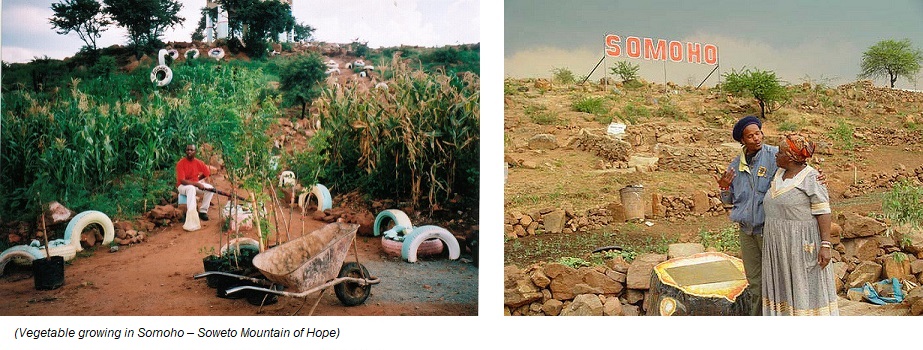
The beginnings of a global network
Jonathan Robinson then came up with a groundbreaking idea. What if people striving for a change, who work towards such change in the isolation of their homes, have a shared space where they can meet, connect and collaborate?
In 2005, he acted on this idea by founding the first Hub in the London Borough of Islington. It was a work environment primarily intended for social innovation. The vision behind it was to create a place where innovators can work, learn and connect. He started to build an international network of people, places and programs that helped its members and users grow and create things that had a positive impact on the society.
Today, the Impact Hub connects people from across various fields who are brought together by their desire to make a change in the business environment and the society, both locally and globally.
Although every Impact Hub is different, all of them are share several elements. Some of these may include desks arranged to encourage conversation or reception desks for hosts. Their role is to greet arriving members, create a friendly environment and connect the right people.
The Impact Hub focuses on supporting its member base of entrepreneurs, freelancers and changemakers. They work on the line between the traditional work environment and a culture of entrepreneurship so as to achieve the maximum impact of their activities both globally and regionally. Research suggests that 60 % of members of the Hub community place the impact effect of their business above its financial returnability.
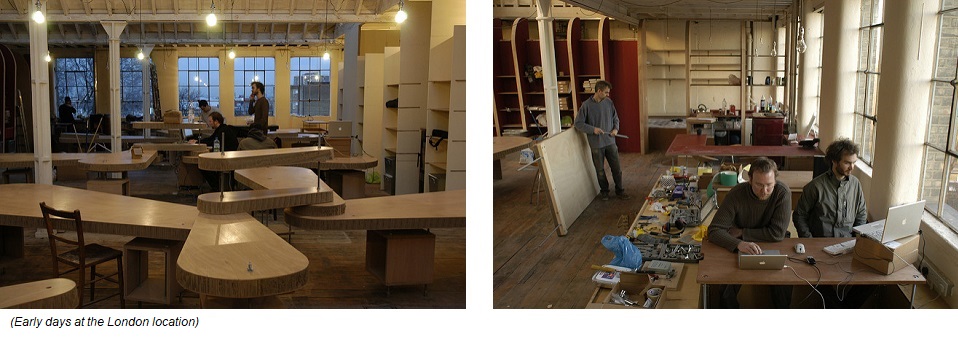
How the Impact Hub spread to the Czech Republic
Similarly to the first Impact Hub in Islington, there were some bold souls in the Czech Republic who managed to create a then-unprecedented space and became pioneers of shared offices. The founding four were Zdeněk Rudolský, Jakub Mareš, Petr Vítek and Petr Baše. In 2010, with the support of investors, they founded a place in the Prague district of Smíchov that gives individuals, teams as well as entire companies and organizations an opportunity to continue to develop. Whether as a result of working in the community, organizing events in the Impact Hub facilities or participating in acceleration programs.
“At the beginning, there was something that later became part of the Hub – active connecting. A friend from Belgium recommended the Hub as a fantastic project to us. Soon thereafter, we met the founder of the first Hub, Jonathan Robinson, at a conference. We felt like this was missing in the Czech Republic. We had a feeling that in the Czech Republic there were many great people with an idea or the desire to start their own project but they did not have the necessary facilities, connections, feedback, team, encouragement or sustainable financing. And that is why we decided to build such a space. We adapted the concept of the Impact Hub in London to the Czech conditions and created a place where work would meet purpose,” says Petr Vítek.
“I met the founder of the Impact Hub in the winter of 2009 when the Impact Hub started to write its story in the Czech Republic, in the dusty spaces of the Smíchov printing works. On the human as well as the professional level, they represented a specific mix of entrepreneurial enthusiasm. Thanks to them, the Hub was attracting alike-thinking people from the very beginning – we nicknamed them “go-getters with impact”. Over the nearly ten years of its existence, the Hub has helped bring hundreds of projects come to life, connected thousands of people and changed in many ways but one – it is still an environment where “go-getters with impact” feel good, where they can work on foolishly bold projects and discover hardly predictable ways to success,” said member Radek Hradil sharing his perspective.
Today, members of the Czech Impact Hub network account for nearly one tenth of the entire global community. And it is growing in more aspects than in terms of people. The four Czech Impact Hubs – 2 of them in Prague, one in Brno and one in Ostrava, spread across 9,350 square meters. In 2018, Impact Hub Brno became the largest Impact Hub in Europe and the second largest in the world. Every meter is lined with member stories and provides space for the development of many more. In August 2018, we added one more joy. We became the majority owner of K10 Coworking. This only means one thing: The great adventure is far from over.
What does the Impact Hub mean for member Petr Skondrojanis? “For me personally, the Hub represents several things. Let’s put together an imaginary timeline. When you come here, you do not know much and that is why this place is a wonderful base for your idea regardless of how crazy it is. When you then meet other members and the team and you begin to understand what the Hub is trying to do, it gives you courage. If they can go against the flow, why could you not join them? Your perception begins to be slightly influenced by the story and the idea of the Hub and it stays with you for life. There are many interesting co-working spaces but there is and will always be only one Hub.”
We are proud to be part of such a strong global network. It tears down barriers and promotes collaboration, sharing and connecting. We all share the same mission and vision even though we each regionally focus on slightly different activities and address them together. In the spirit of trust, courage and collaboration, we stay in the same boat and try to make the world a better place for life.
